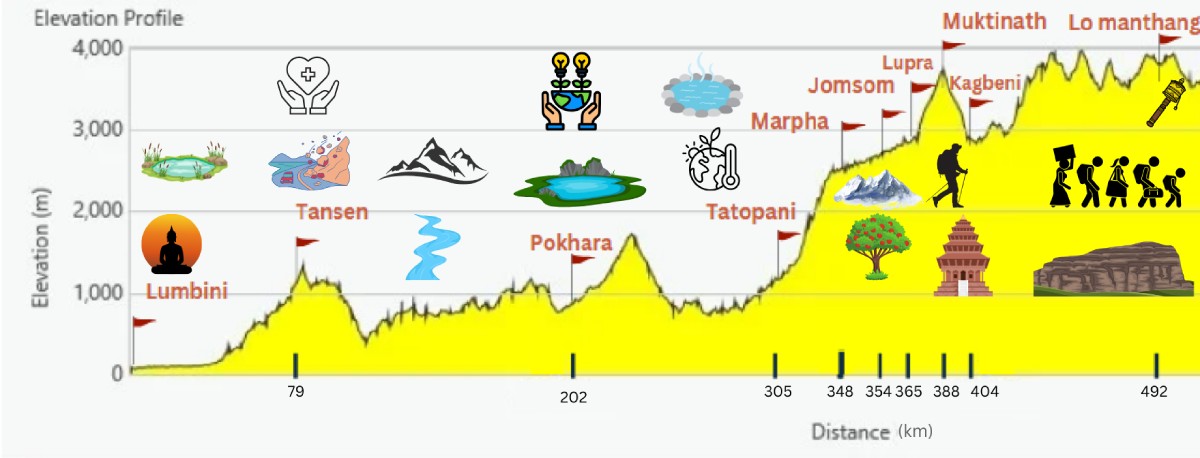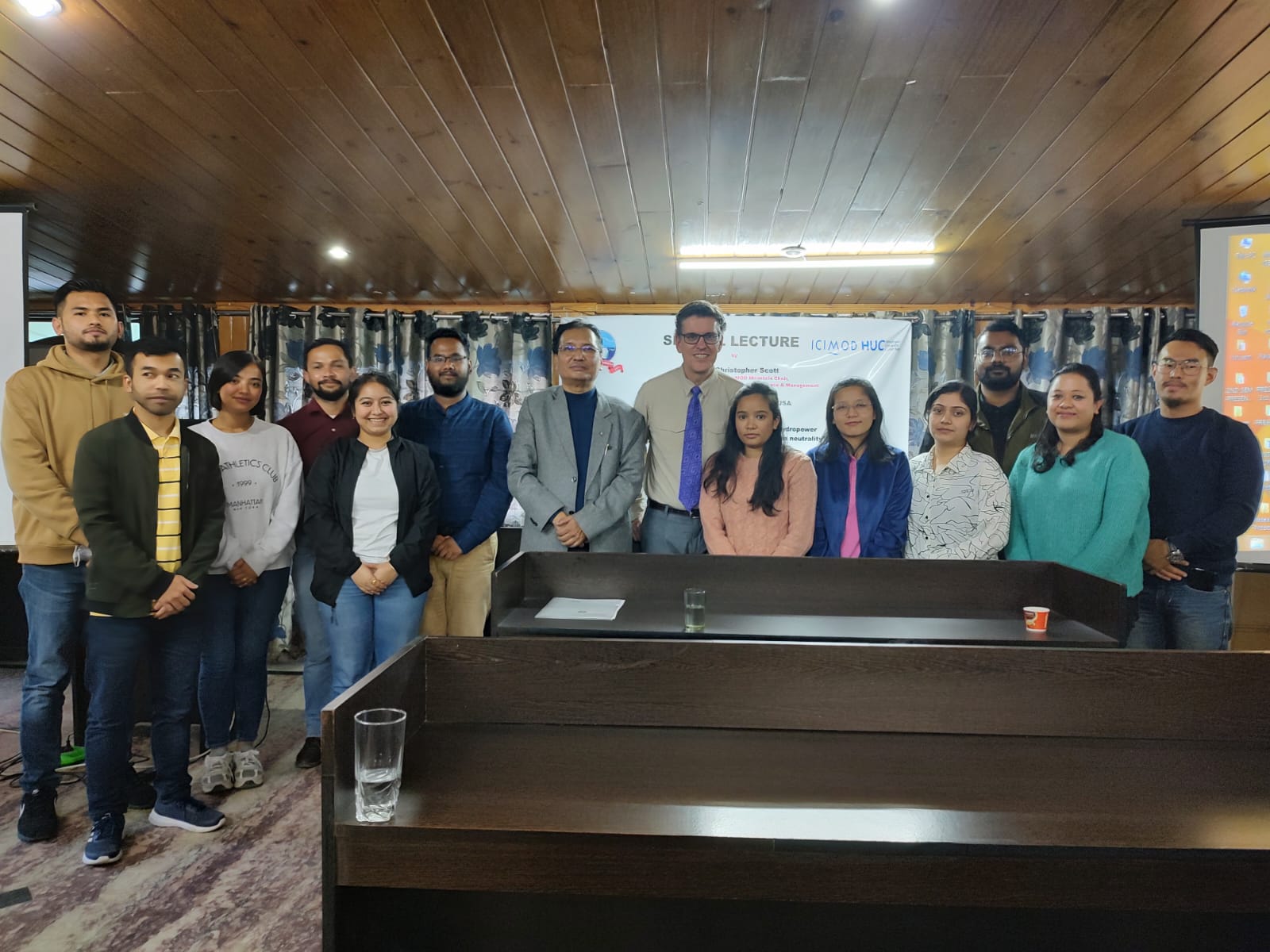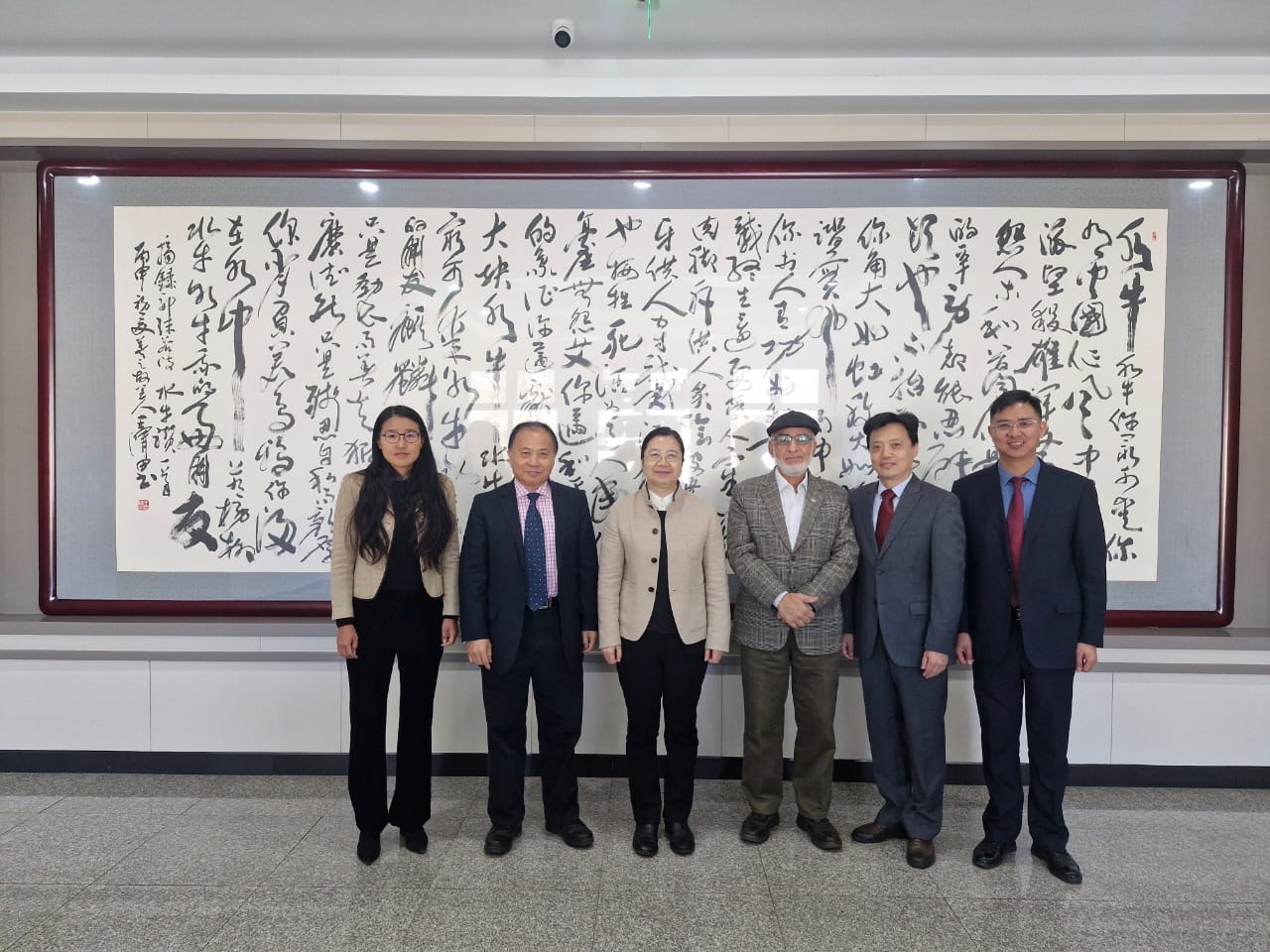Meeting Summary Report
1. Introduction and Purpose of the Meeting
The bilateral meeting between the HUC and the APAARI was convened to discuss HUC’s transition towards autonomy, governance strategies, partnership opportunities, and pathways to self-sufficiency. The discussions aimed to leverage APAARI’s extensive experience in institutional independence and explore potential collaborative frameworks that align with both organizations’ mandates and strategic priorities.
2. Meeting Proceedings
The meeting was structured into three main sessions, each followed by an open discussion and Q&A segment:
Session 1: APAARI’s Activities
- Overview of APAARI’s membership and partnership models
- APAARI’s role in strengthening agricultural research in the Asia-Pacific region
- Ongoing initiatives in research, capacity development, and regional collaboration
- Challenges APAARI faces, including resource mobilization and engagement of underrepresented stakeholders
Session 2: HUC’s Activities
- Institutional and individual membership dynamics within HUC
- Thematic and cross-cutting Communities of Practice
- Capacity-building initiatives and knowledge-sharing mechanisms
- Current governance structure and the roadmap for transitioning to autonomy
- Strategies for financial sustainability and reducing dependence on ICIMOD
Session 3: Collaboration Modalities & Pathways
- Exploring synergies between APAARI and HUC for knowledge exchange and policy influence
- Institutional partnership frameworks and potential areas of joint research
- APAARI’s guidance on structuring governance and legal independence for HUC
- Consideration of different membership models, including fee-based membership versus a non-binding partnership agreement
3. Key Discussion Points
3.1 APAARI’s Governance and Membership Model
- APAARI shared insights into its transition to an autonomous entity, focusing on its revised membership structure, including UN members, Associate members, and Partners.
- Lessons from APAARI’s journey were discussed, particularly in areas of legal registration, constitutions, and financial resource mobilization.
- The importance of maintaining strong engagement with regional and international research institutions was emphasized.
3.2 HUC’s Transition Roadmap
- Current Status: HUC consists of 107 university members across 8 countries, promoting interdisciplinary collaboration in biodiversity, cultural diversity, and transboundary research.
- Challenges in achieving autonomy: Funding reliance on ICIMOD, the need for a robust financial model, and ensuring HUC remains apolitical.
- Proposed governance updates: Revision of HUC bylaws to reflect academic nature of the network and a neutral political stance and alignment with post-SDG development goals.
3.3 Strategic Priorities
- Enhancing global visibility through a concise 1–2 page impact document showcasing HUC’s contributions to mountain ecosystems and indigenous knowledge.
- Partnership models: Discussion on whether HUC should become an APAARI member (with fees) or establish a non-binding collaboration agreement. APAARI proposed to share the draft partnership statement to HUC.
3.4 Resource Mobilization
- Mapping funding opportunities from global agencies aligned with HUC’s thematic working groups, including climate change and biodiversity.
- Exploring partnerships with Agrinatural, national agricultural research systems, and the Global Forum on Agricultural Research and Innovation (GFAiR).
3.5 Inclusivity and Leadership
- Ensuring participation from least-developed countries, indigenous scholars (e.g., Rongyo Lepcha), and fostering transboundary collaboration.
4. Next Steps
4.1 Governance & Strategic Development
- Finalization of HUC’s revised bylaws and charter, highlighting the academic/scientific nature of the network, and incorporating terms like “apolitical” and aligning with post-SDG innovation goals.
- Preparing legal registration options for presentation at the HUC General Assembly (April 2025).
- Strengthening membership engagement by reconfirming existing universities and identifying new leadership.
4.2 Resource Mobilization & Partnerships
- Development of a business model and sustainable funding strategy.
- Drafting a non-binding partnership statement with APAARI and seeking ICIMOD DG’s formal approval.
- Exploring consultancy engagements with ICIMOD and potential collaborations with Agrinatura and GFAR.
4.3 Communication & Advocacy
- Preparing a concise impact document that highlights HUC’s contributions to regional and global research initiatives.
- Presenting the partnership proposal at HUC’s Steering Committee meeting on 25 February 2025.
4.4 Collaboration with APAARI
- Engaging APAARI’s Staff Manish Rai (on business models) and Samitha Manohar (on membership structures).
- Extending an invitation to HUC members for APAARI’s April 2025 meetings in Kathmandu for further deliberation.
5. Conclusion
The meeting served as a pivotal step in defining HUC’s path towards institutional independence and strengthening its partnerships within the Asia-Pacific region. APAARI’s mentorship and strategic guidance will play a crucial role in HUC’s governance evolution, resource mobilization, and collaboration mechanisms. Both organizations reaffirmed their commitment to fostering knowledge exchange, supporting sustainable development initiatives, and advocating for inclusive growth in mountain ecosystems and transdisciplinary research.
Prepared by: Samitha Manohar
Date: 11-02 -2025
Annexure 1: Participants of the Meeting
HUC Delegation:
- Professor Dr. Attaullah Shah – Vice Chancellor, Karakoram International University, Gilgit Baltistan, Pakistan; Chairperson, HUC Steering Committee
- Professor Dr. Sara Nowreen – Institute of Water and Flood Management, Bangladesh University of Engineering and Technology, Dhaka; Member representing Bangladesh, HUC Steering Committee
- Dr. Chi Huyen Truong – Executive Officer, HUC Secretariat, International
APAARI Secretariat:
- Dr. Ravi Khetarpal – Executive Director
- Dr. Margaret Yoovatana – Advisor
- Mr. Manish Rai – Head of Operations
- Dr. KS Varaprasad – Advisor, Biosecurity and Bioresources (Joined Online)
- Dr. Paul Taylor – Technical Coordinator (Joined Online)
- Ms. Samitha Manohar – Partnership and Membership Manager (Joined Online)
- Mr. Teki Vishy – Associate Coordinator, Knowledge Management and Communication (Joined Online)
- Ms. Darshika Senadheera – Communications Officer (Joined Online)
- Ms. Homaira Jahan Sonam – Technical Officer
- Ms. Sokharath Samnang – Executive Assistant
- Ms. Thansita Tanaphatrujira – Operations Assistant



